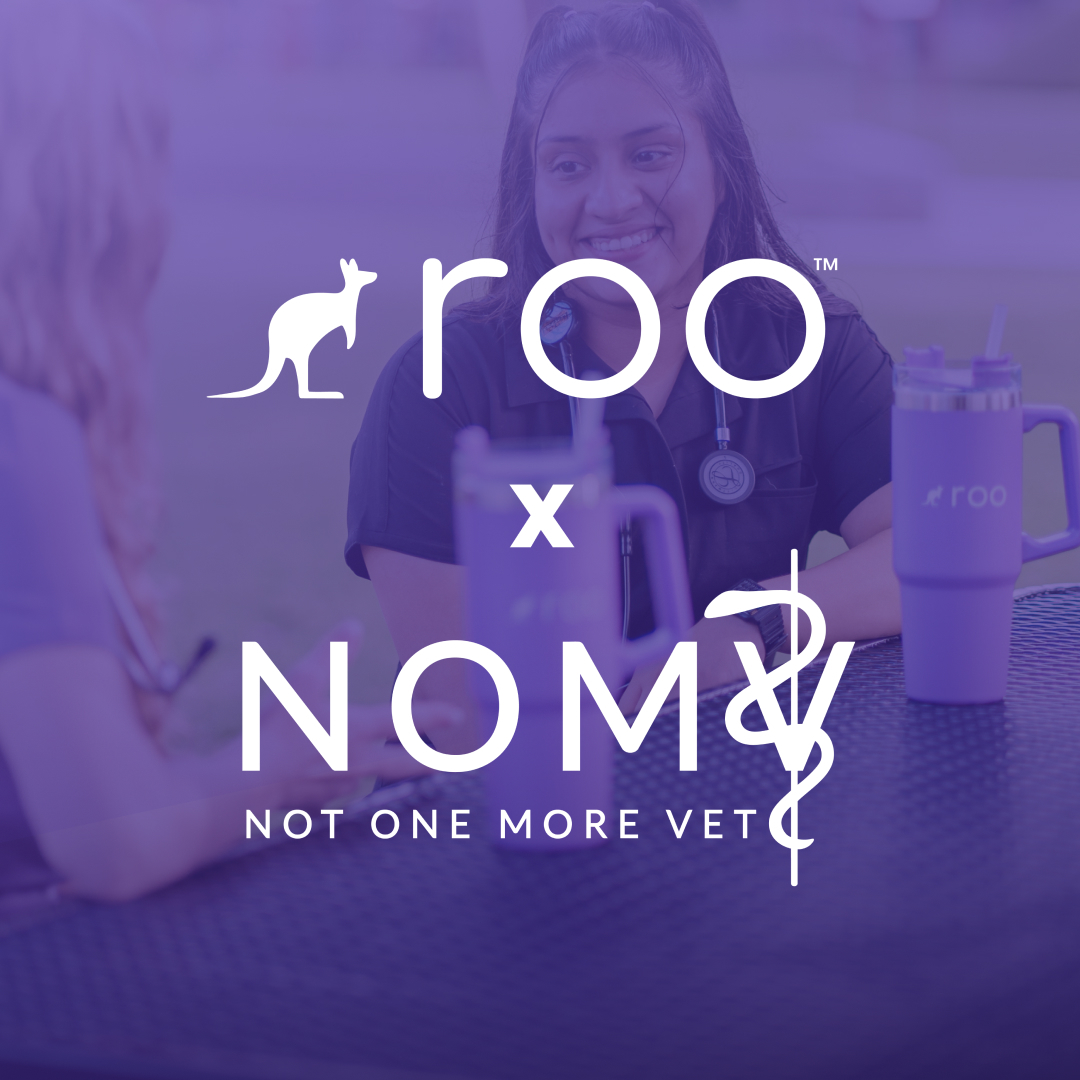You didn’t bust your tail and brain to become a Veterinarian or Vet Tech just to be overworked and underappreciated, right? You want a job that loves you as much as you love animals, and honestly, that's the least you deserve! Whether you’re early in your career, feeling burnt out on long clinic hours, or just poking your nose around for something a little more “you,” here’s your whistle-stop tour of the most vibrant corners of today’s Veterinary job market. You’ll walk away knowing who’s hiring, where your skills matter most, and all the honest details about what it’s like to work there.
And, hey, if you don’t see yourself in one of these fields yet, keep reading there’s way more out there for you and your stethoscope.
Why looking beyond the clinic can change your Veterinary life
Let’s be real: the demand for Veterinary professionals in the U.S. has never been higher, fueled by a new wave of pet parents, expanding options for animal care, and big changes in how clinics operate. But sometimes, the old story of clinic life (stress, burnout, meh pay) just isn’t the fairy tale you were promised. The good news? Your degree is more flexible than a golden retriever doing yoga, and it can vault you into some of the warmest, weirdest, and most inventive employers for Veterinarians in the country.
People are fiercely loyal to their pets, and that’s driving Veterinary medicine to the very top of the list for U.S. jobs in 2025. Translation: demand for skilled Vets and Vet Techs outpaces just about every other health profession and that’s your signal to pick the gig that actually fits you.
The challenge in finding your fit (and why you have more choice than ever)
Here’s the catch: so many opportunities can get overwhelming. You want flexibility, fair pay, maybe room to specialize a bit (or a lot), and a schedule that won’t eat every evening and weekend. You’re not alone. More Vets and Techs are advocating for their needs in the workplace, and the best employers are listening.
Take a look at the top hiring industries for Veterinary professionals, plus the real day-to-day and how you can break in.
Where the jobs are: Top hiring industries for Vets and Vet Techs
Companion animal hospitals and clinics
If you love being the friendly face at the end of a leash or carrier, companion animal practice is where most U.S. Vets and Vet Techs start, and where many stay. Clinics and hospitals treating cats, dogs, and pocket pets are your classic “home base” for hands-on, nose-to-tail care.
- Typical day: Appointments, surgeries, lots of client talk, up to your elbows in puppy breath and kitten wiggles. You’ll need both medical and people skills.
- Salary info (median): Most Vets here earn between $131,000 and $140,000 per year, depending on location and experience. Techs often see $45,000 to $60,000, but with experience or specialty, that number rises.
- Getting started: DVM credential, state license, a real love of pet care, and comfort with tech (digital records, telehealth tools).
- Pros: Great for building relationships, steady demand, solid support networks.
- Cons: Burnout risk, evening or weekend shifts, sometimes heavy caseloads.
Want variety in your schedule? Check out Roo for flexible animal hospital shifts.
Relief and locum Veterinary work
Relief work is changing the game for Vets and Techs who want to build their careers on their own terms. You take temporary gigs at clinics that need short-term help. You get tons of autonomy and you decide when and where to work.
- Typical day: One week, you’re at a high-tech urban hospital, the next you’re covering vacation in suburbia. You get to sample a smorgasbord of workplaces with no long-term obligation.
- Earnings: Relief Veterinarians average about $165,500 per year (that’s $80 an hour), and some top earners hit $273,000, depending on hours, location, and availability. Source: ZipRecruiter: Relief Veterinarian Salary
- What you’ll need: DVM/VMD, state license, and sometimes extra registration for controlled substances.
- Who it’s for: Confident, adaptable animal pros who thrive on fresh challenges and like working independently.
- Benefits: Control over your hours, often higher hourly pay, no office politics, choose your cases and locations.
- Drawbacks: You’ll be buying your own benefits, and managing taxes as an independent contractor is a must. But with Roo, you can get paid quickly, and there’s support for healthcare stipends and tax tips.
Thinking about Relief work? Check out open shifts and upcoming events at Roo.
Corporate groups and multi-site hospital chains
Not everyone swoons at the word “corporate,” but big groups like Banfield and VCA remain some of the largest Veterinary employers in the U.S. These organizations run hundreds of clinics under one brand. This means more standardized practices, beefy benefits, and potentially faster promotions.
- Typical day: Depends on location. You might work with a big team, use uniform systems, and have access to mentorship programs.
- Salary: Associate Vets generally make between $130,000 and $145,000, with managers making more. Tech salaries are in line with independent clinics, sometimes higher. Source: AVMA: Market Research Statistics
- Benefits: Health insurance, paid vacation, retirement savings, licensure and continuing education are usually part of the package.
- Pros: Career ladders, loads of ongoing training, stability, and predictable income.
- Cons: Some Vets and Techs say these jobs can feel impersonal and policies are set at the corporate level. Do your homework before signing.
If you’re looking for more details on corporate clinics, our general hospital resources and industry tutorials can give you the 411.
Emergency and specialty care centers
Ready to level up your skills in fast-paced, high-stakes settings? Emergency and specialty hospitals need sharp thinkers and team players, especially for challenging cases that go beyond itchy skin and snuffly noses.
- Typical day: You’ll treat critical patients, use cutting-edge tools, and collaborate with specialists in internal medicine, surgery, or oncology.
- Getting in: Most require additional internships, and some specialties need board certification.
- Pros: Advanced medicine, strong pay, unforgettable teamwork.
- Cons: High stress and schedules can be unpredictable. Burnout is a real concern.
Not sure if ER or specialty fits you? Taking short-term or Relief gigs is a great way to test the waters.
Government, research, and industry roles
If you want a 9–5 routine, love science, or fancy keeping our food chain safe, industry and government work is a strong option. Federal and state agencies (think USDA, FDA, CDC), pharmaceutical companies, and research institutes need Vet knowledge.
- Typical day: You could be reviewing animal drugs, conducting field inspections, leading public health initiatives, or teaching future Vets.
- Salary: A wide range, from $100,000 for new hires to $160,000+ for advanced roles or management positions. Source: BLS Veterinarian Profile
- Pros: Predictable hours, solid benefits, life outside of work.
- Cons: Paperwork, sometimes slower pace, less direct animal interaction.
Want to meet industry insiders or find networking events in Vet med? Here’s Roo’s page for upcoming events and free education.
Veterinary Techs: More than “just assistants”—career opportunities everywhere
Vet Techs keep clinics (and sanity) running, and there are big opportunities beyond basic patient care. Roles in animal shelters, specialty hospitals, triage support for telemedicine, and education are growing. Advanced certifications open new doors, and you can learn about boosting your Vet Tech skills here.
What’s new in 2025: Trends you’ll see in the job market
- Rising Relief and locum demand: More than ever, clinics are seeking temporary help. Relief Vets now make up 9.1% of private practice jobs, a number that’s risen steadily in the past two years according to the DVM360 State of the Veterinary Profession
- Flexible schedules: Telemedicine and consulting mean you’re not always tied to a clinic floor.
- Well-being support: Mental health benefits and vacation flexibility are showing up in more offers.
- Wages and benefits steadying: Average Vet pay reached $136,000 in 2025, while starting roles passed the $100,000 mark for the first time. For Techs, experience, specialty certification, and flexible gigs are the ticket to higher wages.
How to actually land the right job for you
You want more than just a job, you want one that fits your priorities and lets you grow. Here’s what to do next:
- Make a list of your must-haves (predictable pay, schedule control, path for advancement, team culture).
- Read genuine reviews from other Vet pros and ask for inside scoop on LinkedIn.
- Track continuing education and licensing requirements; many employers reimburse these.
- Don’t be afraid to experiment: Relief and locum gigs let you see what you love (and what you don’t) with no commitment.
- Skill up anytime by trying free CE events or engaging webinars.
- For all things career, check Roo’s open shifts and career resources.
And remember: Your skills are in demand. You have options, so pick the path that feels right for you.
Roo: The fun, flexible way to shape your Veterinary journey
You know what’s even better than being in demand? Having total control over your schedule, getting paid fast, and finding a crew that makes your workdays (and off-days) a little less stressful. That’s the Roo way. Whether you’re a Vet or Vet Tech looking for flexible shifts, skill-building, or nationwide Relief opportunities, Roo is here to back you up. Sign up, check out our flexible opportunities, and start creating your own path in Vet med.
FAQs
1. What are the top three industries that employ Veterinarians?
Answer : The Top three industries that employ Veterinarians are
- Companion animal hospitals and clinics
- Relief and locum Veterinary services
- Corporate and multi-site hospital groups
2. What types of roles can Veterinarians and Vet techs work in?
Answer : Types of roles can Veterinarians and Vet techs work are
- General practice (clinics and hospitals)
- Emergency and specialty care
- Research, industry, government
- Relief or locum opportunities
- Teaching or training
3. How do you navigate the job market in Veterinary fields?
Answer : Start by clarifying your must-haves, research honest employer reviews, try out short-term or Relief gigs, and keep learning new skills to stay competitive.
4. Is Relief work a good choice for work-life balance?
Answer : Relief positions let you set your own schedule and choose workplaces. It can be a solid solution for better work-life balance. Just be ready to handle your own benefits.
5. What benefits do most Veterinary employers offer?
Answer : Most provide paid vacation, licensure reimbursement, continuing education, discounted pet care, and health insurance. Always check specific offers since packages can vary a lot.
Ready to shape your own story in Veterinary medicine? Sign up for shifts, catch skill-building resources, and never settle for less than a workplace that fits you.

.png)




.png)
.png)




